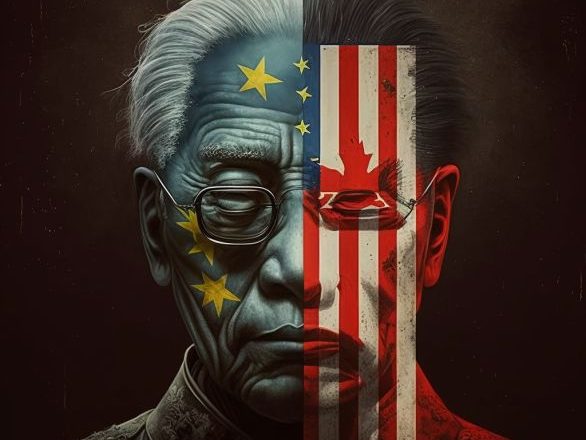China Intends to Win the AI Race, No Matter the Risks

In Brief
China has chosen the option of passing the civilizational fork to accelerate the development of AI based on large language models.
The plan, dubbed “Artificial Intelligence for Science,” was launched by the Ministry of Science and the National Natural Science Foundation of China to accelerate the use of AI to achieve scientific and technological breakthroughs in key areas of science and technology.
China has chosen the option of passing the civilizational fork and it intends to win the AI race, and then come what may.

The fact that another intelligent agent has appeared on Earth is no longer an assumption but a fact. The second carrier of intelligence, AI based on large language models, is currently inferior in some ways to humans. Now, humanity is faced with a choice that surpasses in importance the consequences of all the previous historical forks:
- Accelerate the development of AI based on large language models in order to use its rapidly growing intellectual power to solve the most important tasks of mankind that are impossible for humans.
- Slow down and deal with the risks of further growth in the power of AI so as not to run into irreversible catastrophic consequences.
In the US and Europe, the decision to choose the option of passing through this civilizational fork has not yet been made. There are many supporters of both options. However, in the last two months, more and more voices have been heard in favor of slowing down and working with what we already have.
There is no polyphony of voices in China, and there cannot be. It is for the Chinese Communist Party to decide and for everyone else to accept. And the day before yesterday, the Xinhua decision was officially published, strongly resembling China’s final choice: option A.
- The plan, dubbed “Artificial Intelligence for Science,” was launched on Monday by the Ministry of Science and the National Natural Science Foundation of China.
- The plan aims to accelerate the use of AI to achieve scientific and technological breakthroughs in key areas of science and technology, such as drug development, gene research, and biological selection.
So it looks like no risks are too high in China now. And perhaps in a year, another previous “Wuhan surprise” will seem like an innocent oversight by researchers who neglected necessary safety measures.
Read more about AI:
Disclaimer
In line with the Trust Project guidelines, please note that the information provided on this page is not intended to be and should not be interpreted as legal, tax, investment, financial, or any other form of advice. It is important to only invest what you can afford to lose and to seek independent financial advice if you have any doubts. For further information, we suggest referring to the terms and conditions as well as the help and support pages provided by the issuer or advertiser. MetaversePost is committed to accurate, unbiased reporting, but market conditions are subject to change without notice.
About The Author
Damir is the team leader, product manager, and editor at Metaverse Post, covering topics such as AI/ML, AGI, LLMs, Metaverse, and Web3-related fields. His articles attract a massive audience of over a million users every month. He appears to be an expert with 10 years of experience in SEO and digital marketing. Damir has been mentioned in Mashable, Wired, Cointelegraph, The New Yorker, Inside.com, Entrepreneur, BeInCrypto, and other publications. He travels between the UAE, Turkey, Russia, and the CIS as a digital nomad. Damir earned a bachelor's degree in physics, which he believes has given him the critical thinking skills needed to be successful in the ever-changing landscape of the internet.
More articles

Damir is the team leader, product manager, and editor at Metaverse Post, covering topics such as AI/ML, AGI, LLMs, Metaverse, and Web3-related fields. His articles attract a massive audience of over a million users every month. He appears to be an expert with 10 years of experience in SEO and digital marketing. Damir has been mentioned in Mashable, Wired, Cointelegraph, The New Yorker, Inside.com, Entrepreneur, BeInCrypto, and other publications. He travels between the UAE, Turkey, Russia, and the CIS as a digital nomad. Damir earned a bachelor's degree in physics, which he believes has given him the critical thinking skills needed to be successful in the ever-changing landscape of the internet.























































